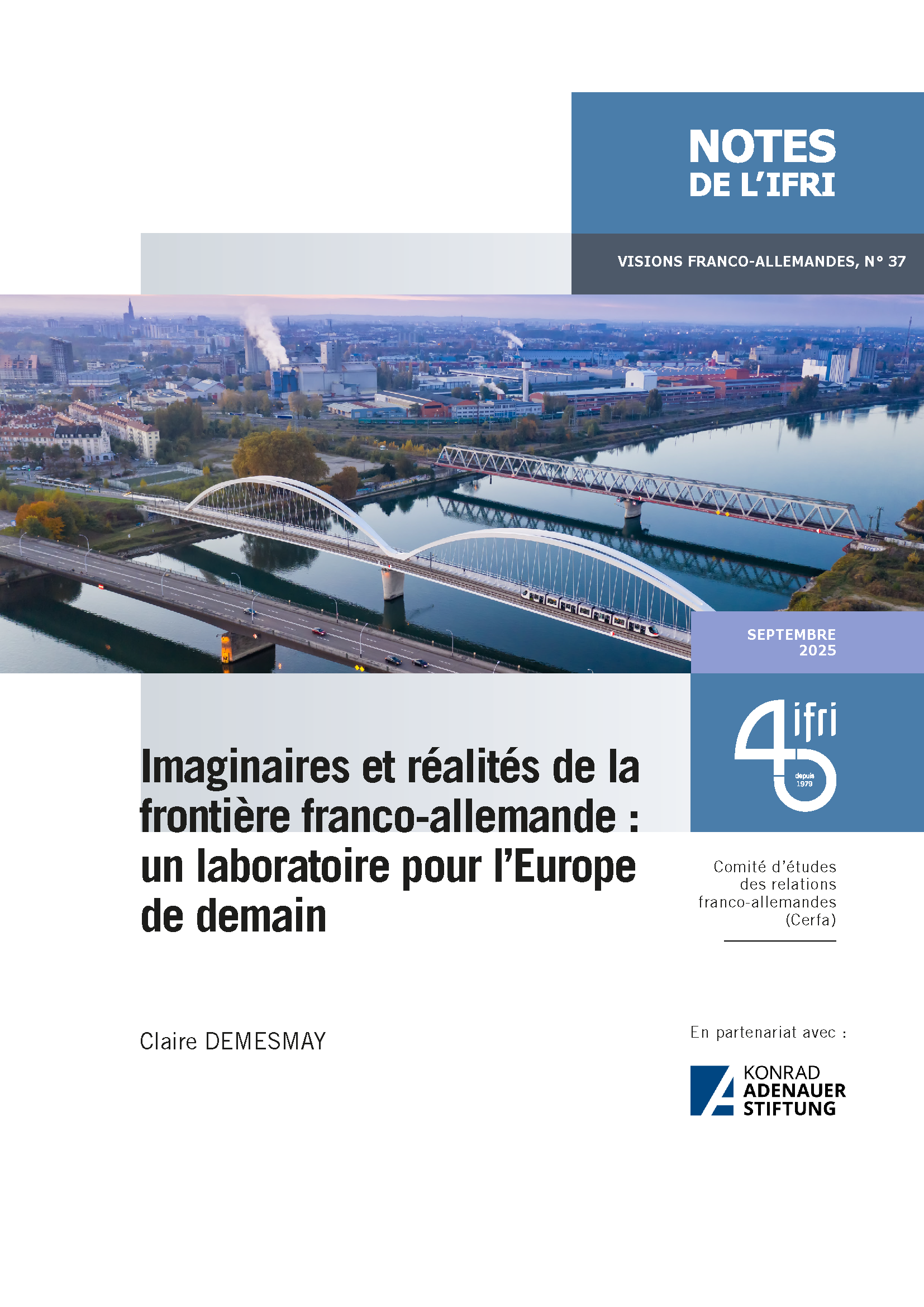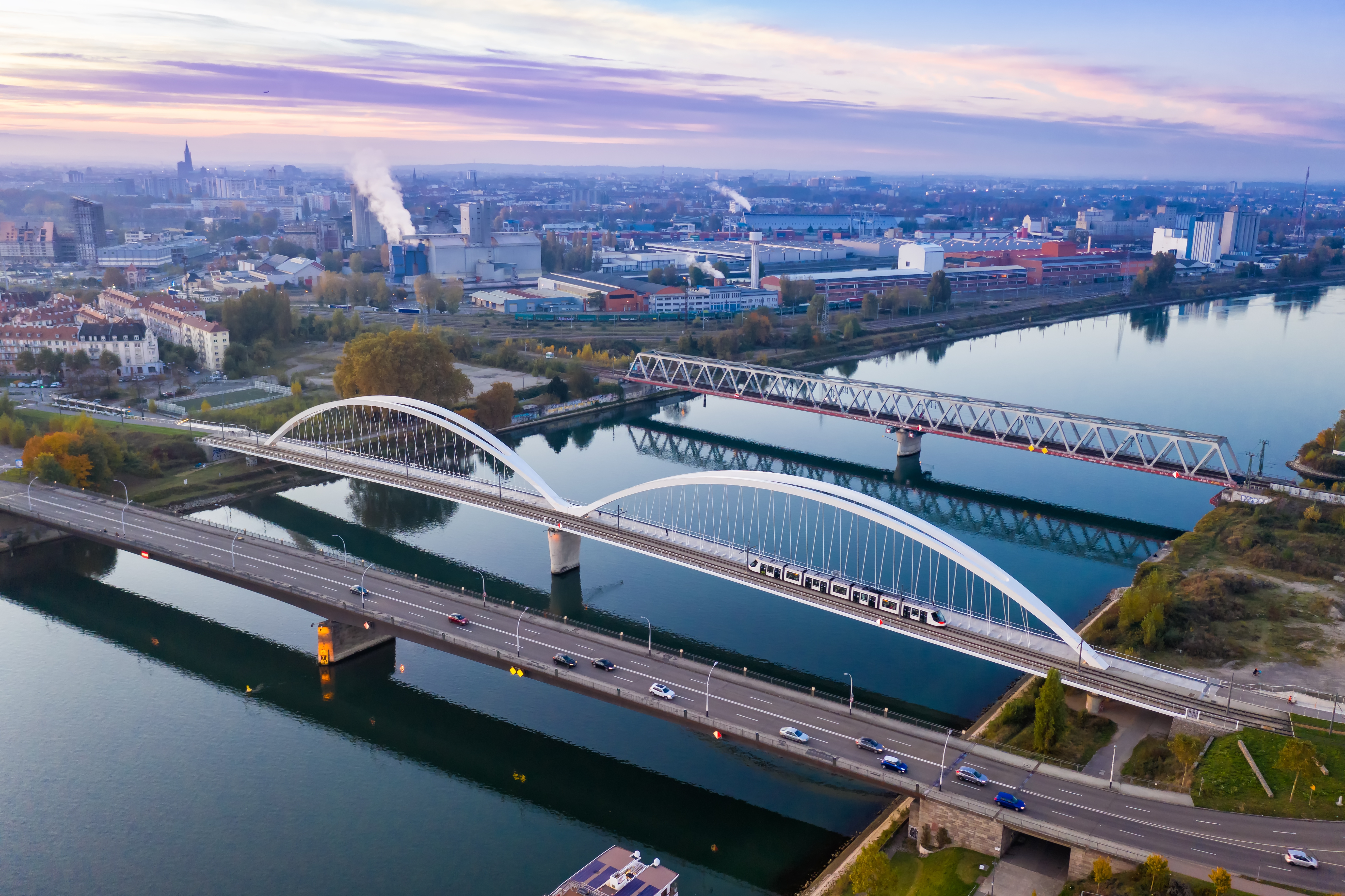Imaginary and Reality of the Franco-German border: a Laboratory for Europe of tomorrow

In Europe, the question of borders is a central issue. According to the European Parliament, border regions cover around 40% of the European Union (EU) territory, concentrate 30% of its population and produce nearly a third of its gross domestic product.

These areas, long regarded as marginal, are now recognized as strategic, both for their economic importance and for the social, cultural, and political issues they raise. Once perceived as a strictly local or regional reality, life on the border is becoming a real subject of European policy. While situations vary from one border to another, they often highlight the structural challenges of integration: recognition of professional qualifications, cross-border access to social rights, and management of multilingualism.
It is from this perspective that the article addresses the border issue, focusing as much on concrete realities as on the imaginaries that traverse them. It first looks back at the gradual erasure of the materiality of internal borders, once lines of separation between states and symbols of sovereignty, which have been progressively reconfigured as spaces for cooperation within the European project. Driven by the ideal of unity, this process has transformed borders from obstacles into places of exchange and movement – at least in pro-European discourse. However, this symbol of integration is being undermined by a trend toward isolationism. While some borders are fading, others are being reinforced: external borders are becoming increasingly important. In contrast, internal borders remain benchmarks in the management of public policy and the structuring of national democracies.
Claire Demesmay is an expert in Franco-German cooperation and Director of the Institut français in Bonn. She held the Alfred Grosser Chair at Sciences Po Paris in 2024-2025 and is an associate researcher at the Marc Bloch Center in Berlin. Her research focuses on Franco-German cooperation in Europe, French and German European and foreign policy, as well as the attitudes of young people and the role of civil society in international relations.
This publication appears in cooperation with the Konrad Adenauer Foundation (KAS).
This publication is available:
French: Imaginaires et réalités de la frontière franco-allemande : un laboratoire pour l’Europe de demain, Visions franco-allemandes, No. 37, Ifri, September 2025 (PDF).
German: Zwischen Vorstellung und gelebter Realität: die deutsch-französische Grenze als europäisches Zukunftslabor, Visions franco-allemandes, Nr. 37, Ifri, September 2025 (PDF).

Available in:
Themes and regions
DOI
Visions franco-allemandes, No. 37, Ifri, September 2025
Share
Related centers and programs
Discover our other research centers and programsFind out more
Discover all our analysesMerz’ European Policy-making: The End of the ‘German Vote’?
Friedrich Merz’s European ambition is to turn Germany, long seen as hesitant into a leading actor within the European Union (EU). To that end, he has pledged to end the “German vote,” a phenomenon that epitomizes the paradox of a country both indispensable and frequently absent from European decision-making.

Securing critical raw material (CRM) value chains – a prerequisite for Europe’s technological resilience
At the heart of economic security, technological resilience is a backbone of the European Union’s (EU) competitiveness. The EU’s energy and digital transitions depend on critical raw materials (CRM).

Reconciling competitiveness and demographic change: a Franco-German imperative
France and Germany are facing parallel demographic shifts that could reshape the future of their economies and their social models. These shifts reflect broader European patterns but are magnified by the central role both nations play in EU governance and competitiveness.
Taking the Pulse: Does France's Political Crisis Weaken Europe's Geopolitical Hand?
While the EU tries to navigate a myriad international challenges, France is experiencing historic political disarray. What impact will instability in Paris have on Europe's geostrategic capacity?








